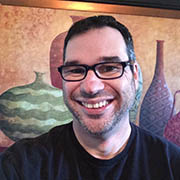THE INDIE FILES: Writing Through Trauma
by J. Scott Coatsworth
In the middle of 2022, I broke my arm. And not just a simple fracture—my orthopedic surgeon said it looked like it had exploded. Thus began a difficult (and still in progress) recovery. I won’t go into the gory details—suffice it to say that for about six weeks, I was unable to use my right hand to type (and I’m right-handed), and for two months it was very hard to sleep.
When a traumatic event occurs, it upsets everything, upending the comforting rhythms of life. For a writer like me, who barely manages to squeeze out an hour or two each day to write, it was devastating.
It took me some time, but eventually, I adjusted, and I thought I’d share what I learned in the process.
- Give yourself time to heal: Whether the traumatic event was physical or emotional (or both), your mind, body, and soul need time to process and cope with your changed circumstance. It’s okay if you can’t write for a while. Everyone else will understand. You should accept it too.
- Figure out what you can do: It quickly became apparent that I’d have to devote all of my remaining, but limited resources to my “day job” so we’d still be able to eat. I am quite fond of eating. My writing had to take a back seat. I’d gotten so close to publishing a trilogy. What could I do? I decided to outsource the editing, publication, and marketing of the book. I contacted a publisher I’d met at BayCon and asked if he’d look at the manuscript, and in less than a month, I had the project moving again and with additional resources—ones I would have had a hard time mustering on my own. So be creative. Maybe you can write a few sentences a day. Maybe you’re in the headspace for editing but not for new work. Or maybe it’s enough to just jot down some story ideas each day in a journal. Find some way to keep moving forward, however small.
- Explore assistive technology: If whatever caused your trauma has a physical manifestation, find out what technologies are out there that might help and what they cost. In my case, my broken arm meant that I couldn’t type much with my right (dominant) hand for a month and a half. I explored getting a one-handed keyboard, but in the end, I figured out how to use speech-to-text on my phone and computer, which was a huge help.
- Ask your doctor for what you need: Wearing my sling 24-7 was making me crazy (and making it harder to work). I talked to my surgeon, and he let me take it off as long as I was seated, which was a huge help. Don’t assume you don’t have options. If there’s something that might make your writing (and your life) easier, ask for it. Even if the answer is no, there might be another solution you haven’t thought of.
- Manage your expectations: Even with a scaled-back agenda, there will be times when you can’t keep up with your plans. This happens to writers in the best of times—how many of us have pushed a deadline? After a trauma, you may have significant physical and emotional setbacks. I was exhausted for a month after my accident, worn out by lack of good sleep and by the demands healing made on my body. Sure, I probably could have dictated a whole novel in that time if I’d been able to get into creative and productive headspace, but the lack of good sleep and the energy my body used in the healing process meant I wasn’t up to my usual writing abilities, even with assistive technology. Realize that you’re not going to accomplish what you would have without the trauma.
- Treat yourself: When you do accomplish something, set up a reward system for yourself. Maybe a piece of chocolate (my favorite), a few minutes out in the sunshine, or a fifteen-minute nap. Celebrate what you are able to do. And even on bad days, take a little time for self-care.
- Ask for help: Have some edits that are due next week? Need to put together some unique content for a blog tour? Reach out to your writer friends and ask for a hand. I shifted a bit of social media posting over to a few close friends, and it helped immensely.
- Write about the trauma: I’m still processing what happened to me. One moment I was on my bike, zooming down the street I rode on four or five times a week, and the next, I was on the ground, and my arm wouldn’t move. I was really angry for months about that moment, and a lot of what-if-isms ran around inside my head. What if we’d taken a different route? What if the debris in the street hadn’t been here? What if I’d just stayed home that day instead of taking that bike ride? I’ll work it out in my fiction—some unfortunate character’s gonna get broken, and we’ll see how he feels about it. Writing it out can be very therapeutic.
- Take some risks with your work: As you slowly get back to your writing, try some new things and see where they take you. Trauma is a wake-up call in life. It reminds us that nothing is certain and that we all get only so many productive days. Let your trauma make you a better writer in the long run. Write an entire story in first person present. Heck, try it in second person. The crazier, the better.
The bottom line? You won’t be the same writer after a major trauma that you were before, and for a while, you may not write at all. Cut yourself a little slack. You may end up a better writer when all is said and done!
 Scott Coatsworth lives with his husband Mark, in a yellow bungalow in Sacramento. He was indoctrinated into fantasy and sci-fi by his mother at the tender age of nine. He devoured her library, but as he grew up, he wondered where all the people like him were.
Scott Coatsworth lives with his husband Mark, in a yellow bungalow in Sacramento. He was indoctrinated into fantasy and sci-fi by his mother at the tender age of nine. He devoured her library, but as he grew up, he wondered where all the people like him were.
He decided that if there weren’t queer characters in his favorite genres, he would remake them to his own ends.
A Rainbow Award winner, he runs Queer Sci Fi, QueeRomance Ink, and Other Worlds Ink with Mark, sites that celebrate fiction reflecting queer reality, and is the committee chair for the Indie Authors Committee at the Science Fiction and Fantasy Writers of America (SFWA).



